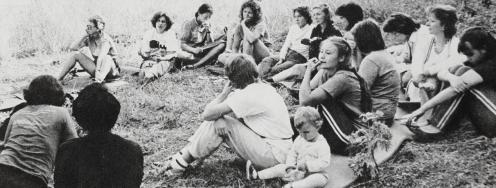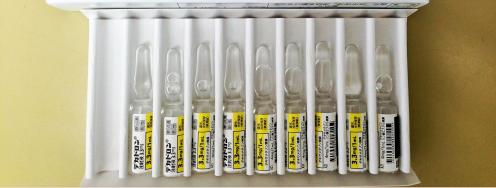Former Ambassadors to Israel and US Diplomats Support Iran Deal
On the radar: Formers see value in the deal; Mexico truck found; Taking apart Cold War munitions; House Republicans knock deal; George Will assesses the deal; and the Most secure volleyball court in the country.
December 5, 2013 | Edited by Benjamin Loehrke and Lauren Mladenka
Good deal for Israel - “We are persuaded that this agreement arrests Iran’s nuclear program for the first time in nearly a decade and opens the possibility of ultimately stopping Iran from developing a nuclear weapons capability. More than any other option, a diplomatic breakthrough on this issue will help ensure Israel’s security and remove the threat that a nuclear-armed Iran would pose to the region generally and Israel specifically," write 9 former U.S. ambassadors to Israel and former under secretaries of state in a letter to Congress.
--”The diplomacy underway now to stop Iran’s nuclear weapons program is not without risks, but it is important and wise to pursue it fully and carefully, so that the use of force remains only as a last option.”
--Letter signers: Under Secretary Michael Armacost, Under Secretary Nicholas Burns, Amb. Edward Djerejian, Amb. William Harrop, Amb. Daniel Kurtzer, Amb. Samuel Lewis, Amb. Thomas Pickering, Amb. Edward Walker Jr., and Under Secretary Frank Wisner. Full letter psoted at the Atlantic Council. http://bit.ly/193cPzh
Whew - “Truck With Radioactive Load Is Recovered in Mexico” by Randal Archibold and Rick Gladstone for The New York Times. http://nyti.ms/1d0NWDz
IAEA to Arak - Inspectors from the International Atomic Energy Agency are set to visit Iran’s Arak reactor. The “nuclear reactor and associated production plant in Arak are a special concern because plutonium can be used in a nuclear bomb.” Tom Gjelten of NPR has the story.http://n.pr/IFQQnm
Legacy dismantlement - “Russia and NATO agreed Wednesday to work together to destroy thousands of outdated Cold War-era munitions in Russia’s Kaliningrad region,” reports John Vandiver. The agreement “will make the environment safer for all those who live near these stocks of dangerous ammunition,” according to NATO Secretary General Anders Fogh Rasmussen. Read the report in Stars and Stripes. http://1.usa.gov/IRk5Vf
Programming note: Early Warning will be offline tomorrow. We will resume our normal schedule on Monday.
House bill - “House Republicans are considering various legislative options that would either tacitly or explicitly rip the Obama administration’s nuclear deal with Iran,” with the party “debating how best to express disapproval of the multilateral agreement,” reports Molly Hooper for The Hill. Full story here. http://bit.ly/1bK2XwP
Tweet - @MicahZenko: Iran began enriching uranium on June 25, 2003. For those suddenly angered that the US has "permitted" this.
Two options - The recent Geneva deal on Iran’s nuclear program “will not stop Iran from acquiring nuclear weapons; only a highly unlikely Iranian choice can do that. The agreement may, however, prevent a war to prevent Iran from acquiring such weapons,” writes George Will for the The Washington Post.
--Exploring whether to attack Iran or negotiate and contain Iran, Will says that “Those who prefer [going to war with Iran] have an obligation to clearly say why its consequences would be more predictable and less dire than those in the disastrous war with Iraq.” Full article here. http://wapo.st/IRpVG9
Report - ”Ebb in Uranium Enrichment in U.S. Raises Questions About Nuclear Policy” by Matthew Wald for the New York Times. http://nyti.ms/IKF5fE
Tweet - @armscontrolnow: India expanding nuclear weapon facility in Mysore, says report by ISIS. http://bit.ly/1bjjkdj
The Guards and Iran’s economy ”Iran: The High Cost of IRGC’s Economic Might” Akbar Ganji for The National Interest. http://bit.ly/1jqa672
Events:
--”The Iran Nuclear Deal: Does It Further U.S. National Security?” Hearing with Sec. John Kerry before the House Committee on Foreign Affairs. Dec. 10 @ 1:00pm. http://1.usa.gov/189IhgI
--”Making Sense of Nuclear Negotiations with Iran: A Good Deal or a Bad Deal?” Discussion with Alireza Nader, Daryl Kimball, and Paul Pillar at 2168 Rayburn House Office Building. Dec. 10 from 2:00-3:00. RSVP by calling Kurt Card at (703) 413-1100 ext. 5259 or online. http://bit.ly/18hj5jc
--”Avoiding Future Irans: A New Course for U.S. Nonproliferation Policy.” Discussion with Rep. Ileana Ros-Lehtinen, Rep. Brad Sherman, Sen. Ed Markey (invited), Mark Wallace, Daryl Kimball, Kingston Reif, Christopher Paine, and Robert Zarate at B338 Rayburn House Office Building. Dec. 11 from 11:45-1:30. RSVP here. http://bit.ly/1cUWprv
--”Critical Mass: Nuclear Proliferation in the Middle East.” Discussion with Rep. Jim Cooper, Rep. Mac Thornberry, and Andrew Krepinevich at 2218 Rayburn House Office Building. Dec. 12 at 10:00. RSVP here. http://bit.ly/1863IPJ
--”Key Policy Issues for U.S. Nuclear Cooperation.” Discussion with Rose Gottemoeller, Daniel Poneman, Thomas Moore, Mary Beth Nikitin, Miles Pomper (possible), Leonard Spector (possible), and Steve Rademaker at the Atlantic Council. Dec. 12 from 3:00-5:30pm. RSVP here. http://bit.ly/1cUX6kw
--Deterrence Stability and Escalation Control in South Asia.” Discussion with Rose Gottemoeller, Robert Einhorn, Mansoor Ahmed, and Silakanta Mishra at Stimson. Dec. 13 from 11:30-2:00. RSVP here. http://bit.ly/1dLltq3
Dessert:
Secret service - The “Superblock” at Lawrence Livermore Lab, a heavily guarded facility responsible for securing plutonium at the nuclear weapons lab, just installed a beach volleyball court inside the perimeter fence.
--It could be the most secure volleyball court in the country, if you disregard a 2008 security exercise where guards posing as terrorists gained access to the facility’s plutonium. Elias Groll at Foreign Policy has the story and the Google Maps images. http://atfp.co/18kT3P8



